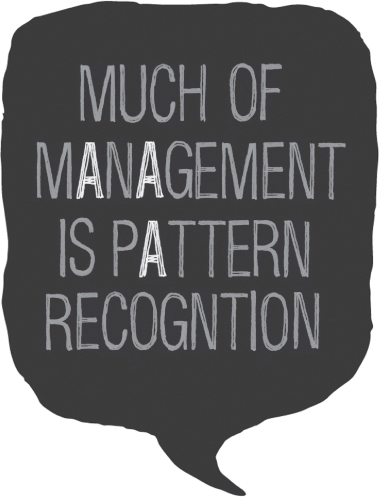CHAPTER 5
MAKING DECISIONS IN AN UNCERTAIN WORLD

Being decisive sounds like one of those vague qualities like business sense, or acumen, or charisma which you are either born with or without.
Fortunately, decisiveness is a management art that can be learned. Many management decisions are very easy. It is dealing with the tricky decisions where you prove your worth. Faced with a tricky decision, managers will usually ask themselves a series of questions which will soon decide the answer:
- Do I recognise this pattern? Much of management is pattern recognition. Once you have seen the same movie several times, you know what happens next. Decide accordingly.
- What does my boss want? At worst, this can lead to a game of second guessing which is counter-productive. But you should have a clear idea of the priorities of the boss and of the firm as a whole: this may guide you in one direction or another.
- What does my team want? If the boss is indifferent about which course of action is best, then talk to your team. It is better to run with a decision which they believe in and are committed to than imposing a decision that may be marginally better but they hate.
- What are our values? Most firms have basic beliefs about what is right and wrong: does your organisation put profits, staff, customers, the environment or something else first? There is always a pecking order of values that should guide you.
Inevitably, these questions may give conflicting guidance. At which point it is worth remembering that decision making is not a rational act in most organisations. It is a political act which speaks volumes about perceived priorities. A decision is only as good as the extent to which it is accepted. The more marginal a decision is, the more important it is to build a coalition in support of the decision. You have to spend time working key decision makers and influencers in private to come to agreement. The moment you let them take a public position, they are committed and will find it hard to change their view without losing face.
If you have to hold a meeting, never use it to make a decision. If you give people a decision to make, they may make the wrong decision. Use the meeting the way the Japanese use meetings: to give public confirmation to the agreements that you have reached in private with each person before you called the meeting. The meeting is about making commitments, not making decisions.
